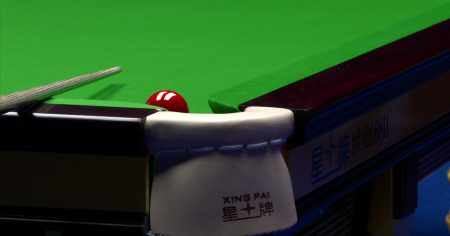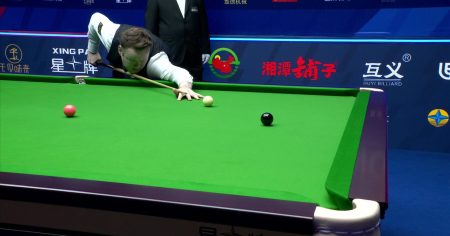The first-round clash between Canada’s Rebecca Marino and Great Britain’s Katie Boulter at the Australian Open provided a captivating display of power, resilience, and tactical tennis, ultimately culminating in a hard-fought victory for Boulter. The match, a rollercoaster of momentum swings and dramatic rallies, showcased the strengths of both players, with Marino’s powerful serve and aggressive baseline play contrasting with Boulter’s tenacity and ability to absorb pressure. From the outset, the match promised excitement as both players demonstrated their intent to dictate play. While the final scoreline may suggest a relatively straightforward win for Boulter, the reality on court was a fiercely contested battle, demanding both physical and mental fortitude from the two competitors. The match served as a reminder of the unpredictable nature of Grand Slam tennis, where even first-round encounters can deliver compelling drama.
Marino, known for her booming serve and aggressive game style, initially seemed poised to dominate the proceedings. She unleashed a barrage of powerful serves and groundstrokes, putting Boulter on the defensive early. The Canadian’s aggressive approach paid dividends in the first set, as she broke Boulter’s serve and maintained her advantage to secure an early lead. Marino’s ability to dictate points from the baseline, coupled with her potent serve, made her a formidable opponent. However, Boulter displayed remarkable resilience, refusing to be overwhelmed by Marino’s power. She showcased her defensive skills, chasing down seemingly impossible shots and extending rallies, gradually forcing Marino to make errors. This tenacity played a crucial role in shifting the momentum of the match.
As the match progressed, Boulter began to find her rhythm, neutralizing Marino’s power and injecting her own aggressive shots into the rallies. She started to anticipate Marino’s serves more effectively, returning with greater depth and precision, thus putting pressure back on the Canadian. The second set witnessed a shift in momentum as Boulter began to dictate the flow of the game. Her improved return game allowed her to break Marino’s serve, gaining a crucial psychological advantage. Boulter’s ability to adapt to Marino’s power and find solutions to the Canadian’s aggressive tactics was a testament to her mental strength and tactical awareness. The tide had clearly turned, with Boulter seizing control of the rallies and dictating the pace of the match.
Building on her newfound momentum, Boulter continued to apply pressure on Marino in the deciding set. She maintained her aggressive approach, forcing Marino into increasingly difficult positions. Boulter’s improved court coverage and ability to retrieve seemingly lost causes frustrated Marino, leading to unforced errors. This frustration became increasingly evident as the match wore on, with Marino struggling to regain the dominance she displayed in the opening set. Boulter capitalized on this, maintaining her composure and closing out the match with confidence. Her ability to stay focused and execute her game plan under pressure was instrumental in securing her victory.
The match underscored the importance of mental fortitude and adaptability in professional tennis. While Marino possessed the raw power and aggressive game style to potentially dominate the match, Boulter’s resilience, tactical adjustments, and ability to handle pressure proved to be the deciding factors. Boulter’s victory was a testament to her mental toughness and her ability to weather the storm and adapt her game plan mid-match. This first-round encounter highlighted the unpredictable and exciting nature of Grand Slam tennis, demonstrating that even seemingly mismatched opponents can produce a thrilling contest.
The encounter between Marino and Boulter served as a microcosm of the broader themes often seen in Grand Slam tennis. It highlighted the importance of mental resilience, tactical adaptability, and the ability to perform under pressure. While raw power and aggressive play can be effective, they are not always enough to secure victory, especially against an opponent who possesses the mental fortitude and tactical awareness to neutralize those strengths. Boulter’s performance provided a valuable lesson: in the crucible of Grand Slam competition, mental strength and adaptability can often trump raw power. This match will undoubtedly be a learning experience for both players, providing insights into areas for improvement as they continue their respective journeys on the professional tennis circuit. For Boulter, the victory provided a confidence boost and a platform to build upon as she progresses in the tournament. For Marino, the loss served as a reminder of the importance of maintaining composure and adapting to changing match dynamics. This thrilling first-round encounter captivated audiences and showcased the high level of competition that characterizes the Australian Open. It served as a reminder that in Grand Slam tennis, anything is possible, and every match has the potential to deliver drama and excitement.














